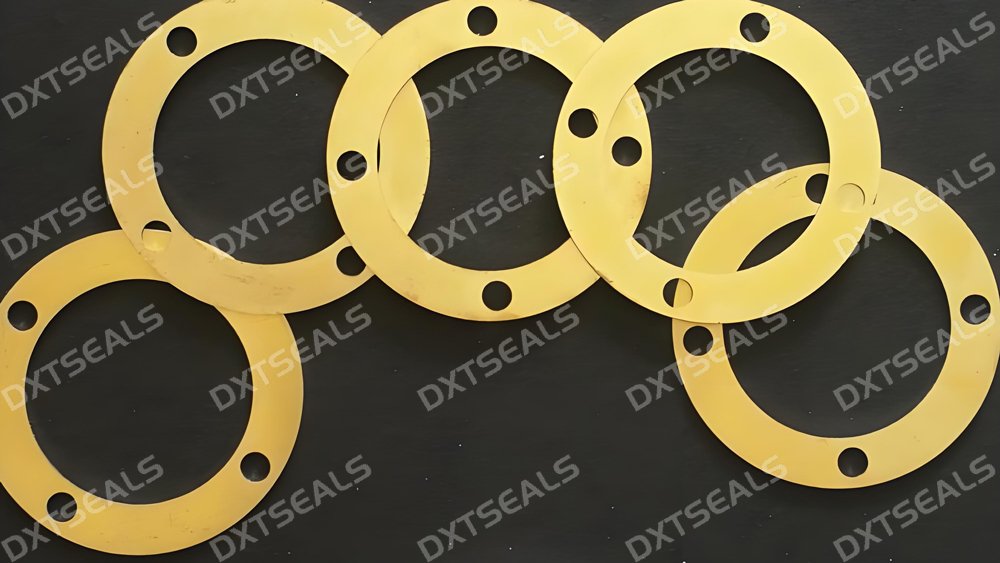
In industrial applications where strength, corrosion resistance, and long-term reliability are critical, material selection plays a decisive role in ensuring sealing performance. Among numerous metals, titanium alloys stand out as a premium choice for demanding sealing systems. Their unique combination of mechanical and chemical properties makes them particularly valuable in aerospace, marine, chemical, and energy industries.
In this article, DXTSEALS explores the performance advantages of titanium alloys and explains their application value in sealing material selection.
1. Key Performance Advantages of Titanium Alloys
a. Outstanding Corrosion Resistance
-
Titanium alloys form a dense and stable oxide film on the surface, providing excellent resistance to seawater, acids, alkalis, and chlorides.
-
This makes them ideal for marine sealing systems, offshore platforms, and chemical processing equipment.
b. High Strength-to-Weight Ratio
-
Titanium alloys are as strong as many steels but nearly 45% lighter, reducing the overall weight of mechanical assemblies.
-
This advantage is critical in aerospace sealing applications where weight reduction directly impacts performance and efficiency.
c. Excellent Biocompatibility
-
Titanium is non-toxic and biocompatible, which is why it is widely used in medical sealing devices and implants.
d. Resistance to Extreme Temperatures
-
Titanium alloys maintain structural integrity from -250°C to +600°C, ensuring reliable sealing in both cryogenic and high-temperature conditions.
e. Long Service Life
-
Due to their resistance to corrosion and mechanical degradation, titanium alloy components offer extended lifespan, lowering the frequency of replacements and maintenance costs.
2. Application of Titanium Alloys in Sealing Systems
Titanium alloys are increasingly adopted in sealing material selection because of their performance under demanding conditions. Typical applications include:
-
Aerospace: Used in sealing housings and rings for engines and hydraulic systems where both lightweight and high strength are critical.
-
Marine & Offshore: Ideal for subsea sealing systems that must withstand long-term seawater immersion.
-
Chemical Processing: Titanium seals and housings resist aggressive acids and chlorides, ensuring safe operations in harsh chemical environments.
-
Medical Devices: Titanium is widely used in medical sealing components due to its non-reactive nature and biocompatibility.
-
Energy Industry: Applied in nuclear, oil, and gas sealing systems, where reliability under high temperature and pressure is vital.
3. Considerations in Sealing Material Selection
While titanium alloys provide outstanding benefits, their higher cost compared to carbon steel or stainless steel means they are best suited for critical applications where performance outweighs initial investment. To optimize sealing performance:
-
Combine titanium alloy housings with advanced sealing materials such as PTFE, FKM, or EPDM for enhanced chemical and temperature resistance.
-
Consider surface treatments to further improve wear resistance in dynamic sealing applications.
-
Evaluate operating environment conditions (pressure, temperature, and media) to justify the cost-benefit ratio of titanium.
4. Conclusion
Titanium alloys offer a unique balance of corrosion resistance, strength, lightweight properties, and durability, making them one of the most valuable materials for sealing applications in harsh environments.
At DXTSEALS, we help customers select the most suitable materials—whether titanium alloys, stainless steel, or engineering plastics—to achieve optimal sealing performance and extended service life.
📩 Contact DXTSEALS today for expert consultation on titanium alloy sealing solutions tailored to your industry needs.
